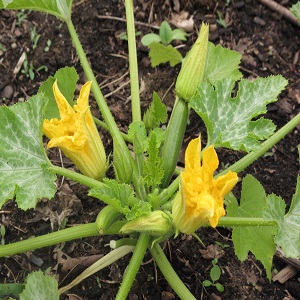How to Plant Zucchini & Summer Squash

Zucchini and summer squash are two refreshing and delightful plant varieties used both as vegetables and fruits. They are delicious raw and are also included in preparation of many dishes. They make an excellent component of salads and even the seeds taste great after being toasted. These both can easily be planted and grown as they are not very demanding. Growing zucchini and squash is going to guarantee ample supply of fresh vegetables in the summer.
Things Required:
– Turning fork
– Compost or well-rotted manure
– Fertilizer
– Organic fungicide and pesticide
– Small knife
– Bucket
– Garden gloves
– Protective clothing
Instructions
-
1
You have to loosen up the ground where you intend to plant. Use a turning fork to loosen up the soil to a depth of around 12 inches. Now mix in manure or compost into this loosened soil and mix in well so that the soil grows fertile and there is improved water retention. These plants thrive in an alkaline PH so you might have to add lime, gypsum, or sulfur to make the PH go to 7 or above.
-
2
Squash and zucchini best grow on raised mounds of soil. Make small hills for every five or six batch of seeds. Plant seeds around the top of the hill at a distance of five inches between each. When the seeds germinate and sprout leaves, you can thin out the weak plants. Plant seeds when the temperature is above 60 degree Fahrenheit and the last frost has passed because squash seeds rot in hard soil.
-
3
After you plant, mulch the soil well as squash like fertile soil. Water frequently but do not drain the plants. Water in the morning and in afternoon to increase water absorption rate. Decrease watering rate as the plant grows and bears fruits.
-
4
Use a fertilizer with a ratio of 4-8-5 . These plants ask for low nitrogen and high phosphorus. 2 tablespoon fertilizer per mound of planting is enough. Do not over-fertilize as it can lead to excessive leaf growth and less fruit quality. Keep a check for insects and fungus and regularly spray with pesticide to protect the plants. They are most vulnerable to the squash bug which suck the juice out of the plants.
-
5
Harvest the fruits when they are 5-6 inches long. Use them immediately or freeze for later use





